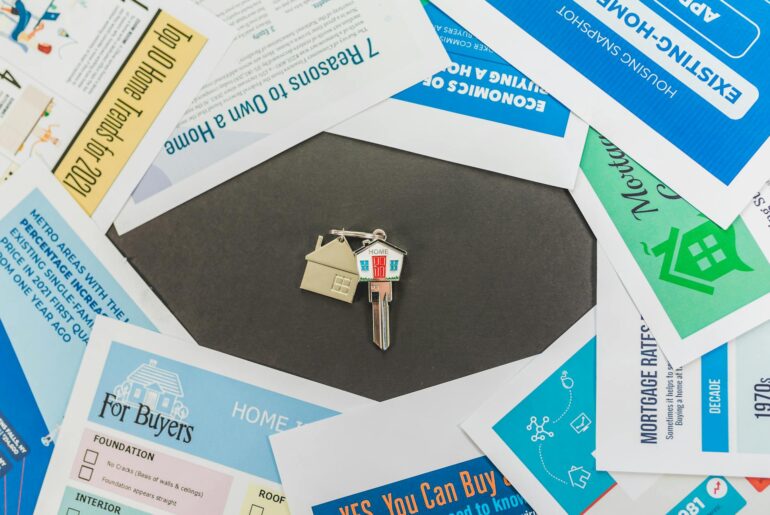This article may contain references to products or services from one or more of our advertisers or partners. We may receive compensation when you click on links to those products or services. Nonetheless, our opinions are our own.
When approaching the topic of refinancing, many homeowners find themselves considering the best ways to balance cost, convenience, and long-term financial goals. While refinancing can offer significant benefits, understanding how often you can do so—and what factors influence this decision—is a key step toward making informed choices.
Refinancing is not just about adjusting interest rates; it’s about aligning your financial situation with evolving market conditions, personal priorities, and future plans. Whether you’re thinking of reducing monthly payments, switching from an adjustable-rate mortgage to a fixed-rate option, or unlocking equity to fund important projects, the question of frequency often arises: just how many times is too many?
Understanding the Different Types of Refinancing
There are multiple ways to refinance your mortgage, each designed to meet specific financial needs. Common options include:
- Rate-and-Term Refinance: This option allows homeowners to reduce their interest rate, shorten or lengthen their loan term, or both. It’s often used to lower monthly payments or switch from an adjustable-rate mortgage (ARM) to a fixed-rate mortgage for stability.
- Cash-Out Refinance: A cash-out refinance lets you borrow more than your current mortgage balance, providing extra funds that can be used for home improvements, debt consolidation, or other large expenses. While helpful, it’s essential to consider the implications of a higher loan balance and monthly payment.
- Streamline Refinance: Streamline refinancing, offered for certain government-backed loans like FHA and VA loans, simplifies the refinancing process by requiring less documentation and no appraisal. This can make it quicker and less costly to refinance when interest rates drop.
By understanding these options, you can determine which refinancing approach best aligns with your financial objectives and current circumstances.
Balancing Frequency and Practicality
There’s no hard-and-fast rule limiting the number of times you can refinance your home, but it’s essential to weigh the costs and benefits each time. With each refinancing event, you’ll face closing costs, lender fees, and possible early loan payoff penalties, which can diminish the financial advantage you’re seeking. While it may be tempting to refinance whenever rates drop or new loan products emerge, a measured approach can help ensure that you’re not trading short-term savings for long-term expense.
Key Points to Consider When Refinancing Multiple Times
- Cumulative Costs:
Refinancing isn’t free, and the associated costs can quickly add up. Application fees, appraisal costs, title insurance, and other closing expenses can reduce your overall savings if you refinance frequently. - Credit Implications:
Each refinancing request typically involves a hard credit inquiry. Over time, multiple inquiries can slightly lower your credit score, potentially affecting your ability to secure favorable terms on future loans. - Lender Requirements and Timelines:
Lenders often prefer to see a certain number of months of on-time payments before approving another refinance. By waiting until your payment history and financial profile meet these criteria, you improve your chances of qualifying for better rates and terms.
When Not to Refinance
While refinancing can be a valuable tool, it’s not always the right choice. Consider avoiding refinancing in the following situations:
- High Closing Costs vs. Savings: If the costs of refinancing are higher than the amount you’d save on monthly payments, it may not be worth it.
- Short-Term Housing Plans: If you plan to move or sell your home soon, you may not have enough time to recover the refinancing costs before selling.
- Worsened Financial Standing: If your credit score has decreased or your debt-to-income ratio has worsened, you might not qualify for better terms.
Recognizing these scenarios can help you avoid unnecessary refinances and ensure that your mortgage changes make financial sense.
Financial Factors to Keep in Mind
| Factor | Effect on Refinancing |
|---|---|
| Credit Health | A strong credit score typically leads to lower rates. |
| Property Value | Higher home values can provide more equity to borrow against. |
| Debt-to-Income Ratio | Keeping this ratio in check makes it easier to qualify. |
Finding the Right Timing and Strategy
Timing plays a crucial role in determining whether refinancing will work to your advantage. By carefully analyzing market trends, your credit profile, and the long-term implications of repeated refinancing, you can make decisions that improve your financial position over time. Consider your goals—be it reducing monthly payments, securing a more predictable fixed-rate loan, or accessing funds for home improvement—and balance them against the costs and potential downsides of refinancing too often.
Conclusion
Refinancing is not a decision to be taken lightly or too frequently. While there’s no set limit on how many times you can refinance your home, each instance should be carefully evaluated to ensure that it supports your broader financial goals. Through thoughtful consideration and a clear understanding of the factors at play, you can make refinancing a valuable tool in managing your home loan and improving your overall financial health.

Reviewed and edited by Albert Fang.
See a typo or want to suggest an edit/revision to the content? Use the comment form below for feedback.
At FangWallet, we value editorial integrity and open collaboration in curating quality content for readers to enjoy. Much appreciated for the assist.
Did you like our article and find it insightful? We encourage sharing the article link with family and friends to benefit as well - better yet, sharing on social media. Thank you for the support! 🍉
Article Title: How Many Times Can You Refinance a House?
https://fangwallet.com/2025/03/26/home-refinancing/The FangWallet Promise
FangWallet is an editorially independent resource - founded on breaking down challenging financial concepts for anyone to understand since 2014. While we adhere to editorial integrity, note that this post may contain references to products from our partners.
The FangWallet promise is always to have your best interest in mind and be transparent and honest about the financial picture.
Become an Insider
Editorial Disclaimer: The editorial content on this page is not provided by any of the companies mentioned. The opinions expressed here are the author's alone.
The content of this website is for informational purposes only and does not represent investment advice, or an offer or solicitation to buy or sell any security, investment, or product. Investors are encouraged to do their own due diligence, and, if necessary, consult professional advising before making any investment decisions. Investing involves a high degree of risk, and financial losses may occur including the potential loss of principal.
Source Citation References:
+ Inspo
There are no additional citations or references to note for this article at this time.












































